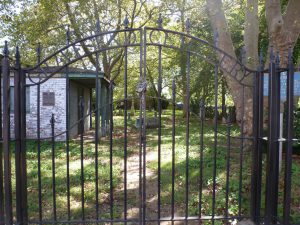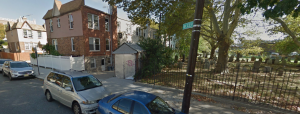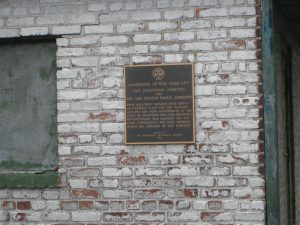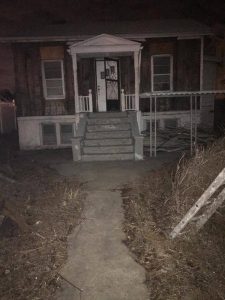Final Exam ENG3407, Gothic Literature and Culture
Fall 2020, Prof. Sean Scanlan
DEADLINE: Midnight, December 16
OVERALL DIRECTIONS: Copy the exam to a word processing program such as MS Word or Google Docs, then type your answers below each question. This is an “open book” exam, which means you can and should use your class notes, OpenLab, and the handouts that we have studied. Proofread your work. Use a spell/grammar check. When you are ready to submit, copy and paste the entire exam (questions and answers) into the body of an email. Then, email to me before midnight, December 16. Use your City Tech email. In the subject line type your full name and ENG3407 final exam. [do not post your exam to OpenLab]
Section 1: Definitions (20 points; 10 points each)
Directions: Briefly define each term; state how the paired terms differ from each other; state who is associated with each term; and provide a brief, concrete example from our texts.
- Fantastic and Marvelous
- Terror and Horror
—————————————————————————————————————–
Section 2: Quotation Identification (45 point; 15 points each)
Directions: Choose 3 out of these 4 quotations. For each quotation write a brief paragraph in which you: identify the title, author, and main characters; reveal why the quotation is important; and explain how it connects to—or reveals—the gothic.
And he marched about the house turning off the voice clocks, the stoves, the heaters, the shoe shiners, the shoe lacers, the body scrubbers and swabbers and massagers, and every other machine he could put his hand to.
The house was full of dead bodies, it seemed. It felt like a mechanical cemetery.
I am doing this all by myself, now, at last; this is me, I am really really really doing it by myself.
In the unending, crashing second before the car hurled into the tree she thought clearly, Why am I doing this? Why am I doing this? Why don’t they stop me?
“They do say,” Mr. Adams said to Old Man Warner, who stood next to him, “that over in the north village they’re talking of giving up the lottery.”
Old Man Warner snorted. “Pack of crazy fools,” he said. “Listening to the young folks, nothing’s good enough for them. Next thing you know, they’ll be wanting to go back to living in caves, nobody work any more, live that way for a while. Used to be a saying about ‘Lottery in June, corn be heavy soon.’ First thing you know, we’d all be eating stewed chickweed and acorns. There’s always been a lottery,” he added petulantly. “Bad enough to see young Joe Summers up there joking with everybody.”
“Some places have already quit lotteries.” Mrs. Adams said.
I learned to recognize the thorough and primitive duality of man; I saw that, of the two natures that contended in the field of my consciousness, even if I could rightly be said to be either, it was only because I was radically both; and from an early date, even before the course of my scientific discoveries had begun to suggest the most naked possibility of such a miracle, I had learned to dwell with pleasure, as a beloved daydream, on the thought of the separation of these elements. If each, I told myself, could but be housed in separate identities, life would be relieved of all that was unbearable.
—————————————————————————————————————–
Section 3: (35 points)
Directions: Choose one Essay Question and develop a multi-paragraph essay.
1–Write an essay in which you examine the gothic in terms of gender and sexuality. Consider, for example, how earlier authors such as Edgar Allen Poe and Robert Louis Stevenson described gender and sexual dynamics in ways quite different from more recent authors such as Shirley Jackson. It may be helpful to use the terms liminality and Gothic Homesickness to explore connections. Students may consider whether or not gender roles have become less stable or whether or not sexuality is at the heart of the gothic. And it may help to consider queer theory and/or the central gothic irony. Compare at least two different authors and use concrete examples from our course readings. Begin with a strong thesis, pay attention to organization, and use the specific terms we have discussed and defined this semester.
2–Write an essay in which you examine how the uncanny works in one or more of our texts. In this essay, students should make an argument about the validity and usefulness of the uncanny. For example, is the uncanny the most important element of gothic literature, or is it simply one smaller aspect of gothic literature? Make sure to describe and define the uncanny according to one (or more) of the critics (Todorov, Freud, Vidler) that we have examined this semester. Students may find it helpful to examine how the uncanny reveals the ways in which fictional characters are treated within families or within group settings. Begin with a strong thesis, use concrete examples from our course readings, and pay attention to organization.
———————————————————
DEADLINE: Midnight, December 16
Email any question.
Best wishes,
Prof. Scanlan












